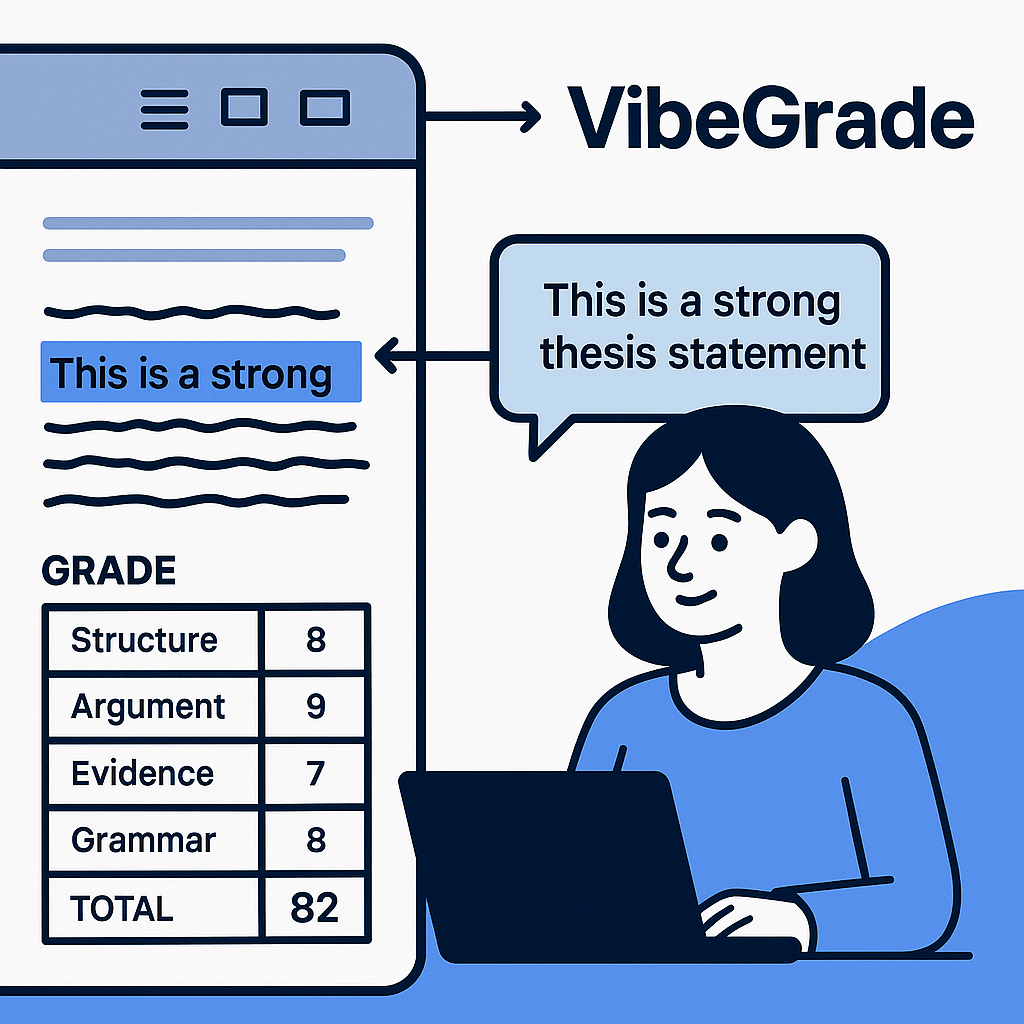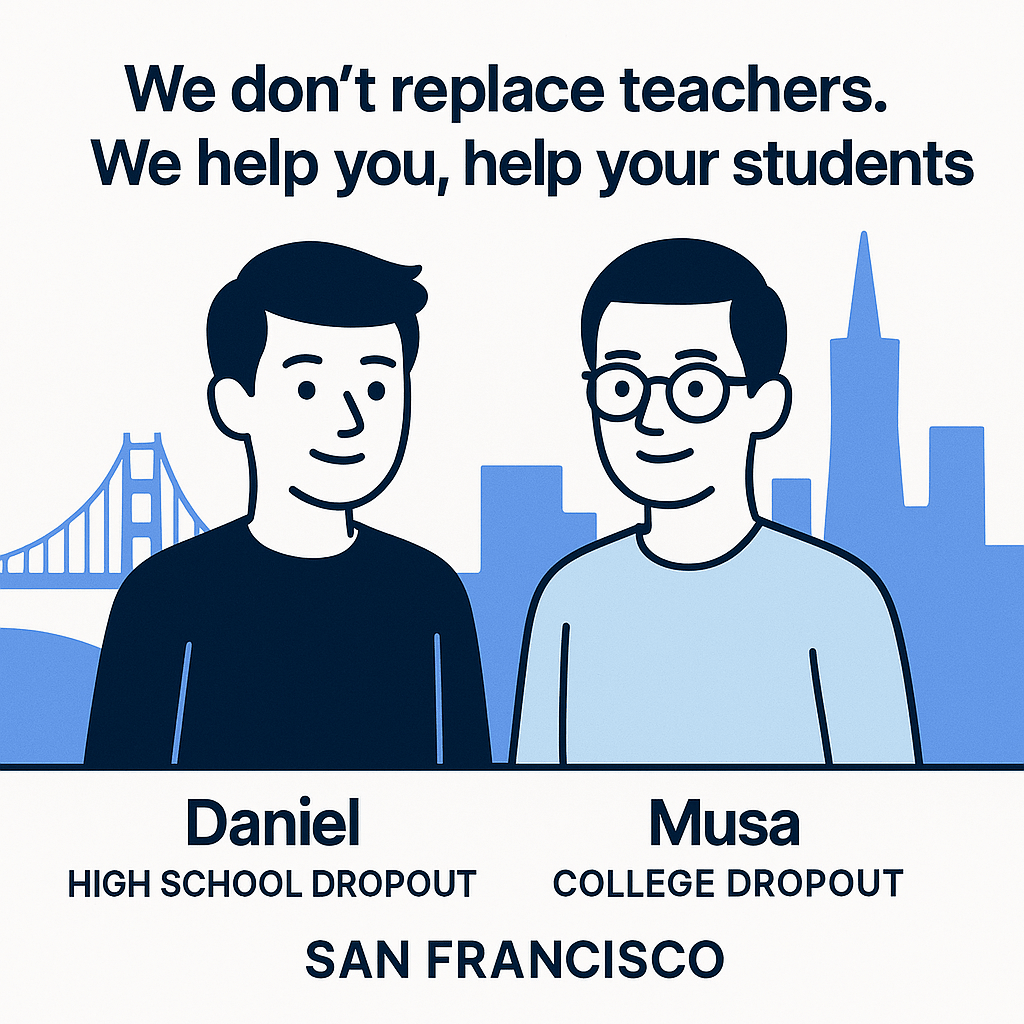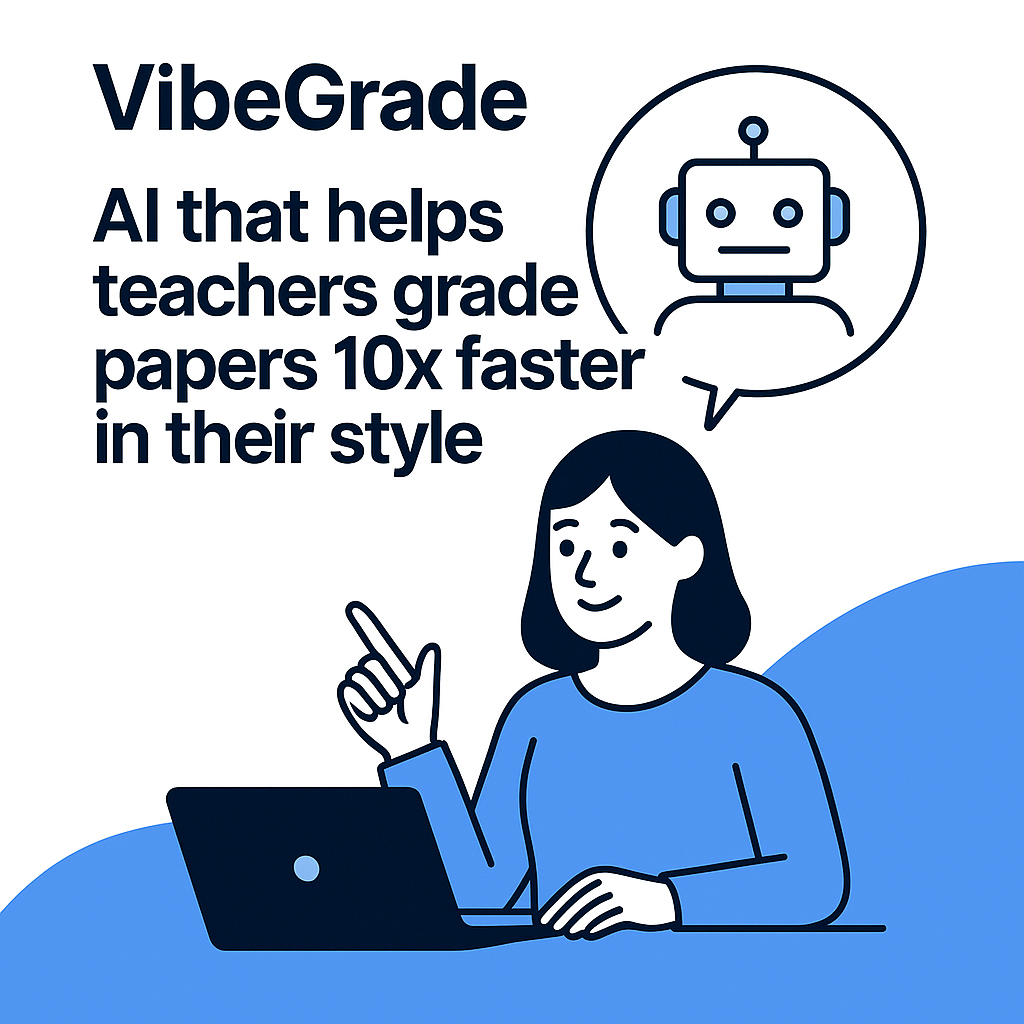VibeGrade: AI Grading Tool for Teachers
VibeGrade emerged in 2023 as a solution to a pervasive and exhausting problem in education: the endless hours teachers spend grading papers. Founded by two young innovators, Daniel and Musa, who themselves witnessed the toll grading took on their high school teachers, VibeGrade set out with a simple mission: to make grading easier, faster, and more personalized for educators.
The founders observed firsthand that while tools like Scantron existed to speed up grading for multiple-choice questions, written work remained a manual, time-consuming task. Teachers often faced mountains of essays, leading to rushed feedback that failed to truly support student growth. Worse yet, many AI solutions demanded clunky workflows like bulk uploads and removed teachers from the heart of the feedback process.
Daniel and Musa believed there had to be a better way—one that respected the craft of teaching while leveraging the power of AI. Thus, VibeGrade was born: an AI-driven tool designed to work inside familiar platforms like Google Classroom, Google Docs, and Canvas, grading essays 10x faster, in the teacher's own style.
What Makes VibeGrade Different from Other Grading Tools?
Most AI grading tools disrupt the natural workflow of teachers, requiring essays to be downloaded, uploaded into a third-party system, and reviewed outside of the classroom ecosystem. VibeGrade took a fundamentally different approach: embed directly into the tools teachers already use.
Working seamlessly within Google Classroom, Google Docs, and Canvas, VibeGrade feels like a natural extension of the grading process rather than a replacement. Teachers simply continue grading as they always have, but with AI support that annotates essays according to the teacher's rubric, provides detailed score breakdowns, and generates personalized feedback—all without the need for cumbersome file handling.
Perhaps most importantly, VibeGrade doesn't aim to replace teachers. It keeps them firmly in the loop, allowing the AI to learn from their style over time. This ensures that students receive authentic, constructive feedback, not generic, AI-generated remarks.
How Does VibeGrade Enhance the Quality of Student Feedback?
Traditional grading, especially when done under time constraints, often results in brief, non-specific comments that leave students unclear about how to improve. VibeGrade addresses this issue by enabling teachers to deliver in-depth, rubric-based feedback more consistently and efficiently.
Using VibeGrade, teachers can annotate specific parts of an essay, highlight strengths and areas for improvement, and provide detailed grade breakdowns for each rubric category. Because the AI mirrors the teacher's style and tone, the feedback feels personalized and trustworthy. Over time, as the AI continues to learn, the feedback becomes even more closely aligned with the teacher's preferred methods, helping students engage with comments more deeply and ultimately grow faster as writers.
In total, VibeGrade has already saved teachers more than 500 school days' worth of manual grading time across 12,000 essays—a testament to its effectiveness in reducing workload while enhancing the quality of education.

Why Is Teacher Involvement Crucial in the VibeGrade Model?
At the core of VibeGrade's philosophy is a deep respect for the teacher's role. Grading is not just about assigning a score; it's about guiding students through their learning journey with meaningful feedback. Removing teachers from this process, as some other tools do, risks losing the human element that makes feedback impactful.
VibeGrade prioritizes keeping teachers engaged. Instead of replacing their judgment, the AI acts as a supportive partner, making the process faster without sacrificing personalization. Teachers maintain final control over grades and comments, ensuring that feedback remains aligned with their standards and values.
By integrating into daily workflows and respecting teacher autonomy, VibeGrade empowers educators rather than sidelining them—a principle that sets it apart in the growing world of AI-assisted education tools.
How Has VibeGrade Been Received by the Education Community?
Since its launch, VibeGrade has rapidly gained traction among teachers who are eager for more efficient ways to manage their workloads without compromising student outcomes. The tool's success is measurable: 500+ school days of grading time saved and over 12,000 essays graded with AI-assisted feedback.
Teachers praise VibeGrade for its ease of use, seamless integration, and, above all, its ability to produce feedback that genuinely sounds like it came from them. In an era where "AI slop" has become a real concern—low-quality, generic outputs that students quickly learn to disregard—VibeGrade's focus on authentic, teacher-led grading has resonated deeply with the education community.
Early adopters also highlight the time savings as a game-changer, freeing them up to spend more time preparing lessons, mentoring students, and even reclaiming some of their personal lives outside of work.
Who Are the Founders Behind VibeGrade?
Daniel and Musa, the teenage dropouts who founded VibeGrade, bring an uncommon passion to their mission. Daniel left high school and Musa left college, both driven by the conviction that they could build something impactful.
Their shared experience of witnessing teachers struggle with grading gave them a unique perspective on the education system's pain points. Rather than following the traditional academic path, they chose to focus their energy on solving real-world problems through technology.
Despite their young age, Daniel and Musa's commitment and insight have positioned VibeGrade as a serious player in the edtech space. Their youth gives them a fresh, student-centered lens, allowing them to design products that truly address the needs of modern classrooms.

What Is the Future Vision for VibeGrade?
Looking ahead, VibeGrade aims to continue deepening its integration with popular LMS platforms, refining its AI models to better capture individual teacher styles, and expanding its reach to more schools around the world.
The team envisions a future where no teacher has to choose between quality feedback and manageable workloads. By helping teachers "help their students," VibeGrade hopes to raise the standard of education while restoring some balance to the lives of educators.
In addition, there are plans to expand VibeGrade's capabilities beyond essays to include other forms of student work—from lab reports to creative writing assignments—ensuring that personalized, thoughtful feedback becomes the norm rather than the exception.
Ultimately, VibeGrade isn't just about faster grading. It's about preserving the human connection between teachers and students, even in a world increasingly shaped by technology.

